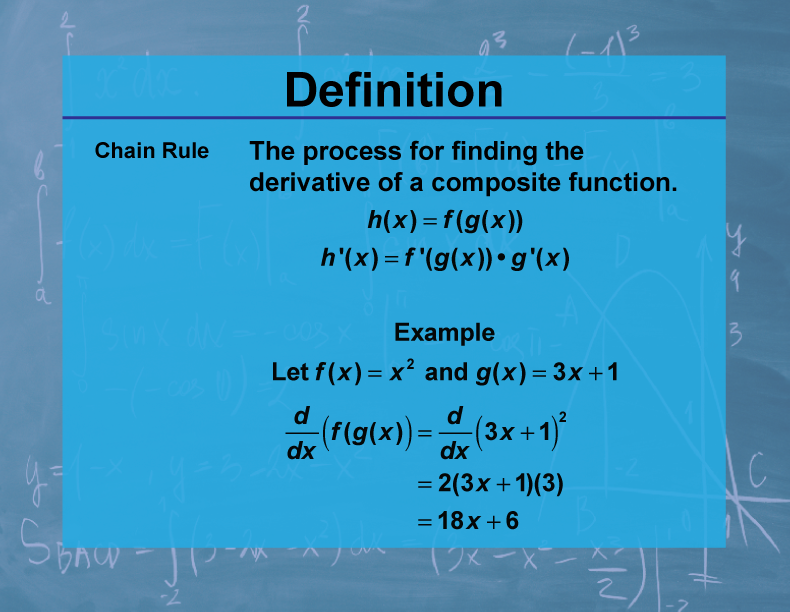
Display Title
Definition--Calculus Topics--Chain Rule
Display Title
Definition--Calculus Topics--Chain Rule

Topic
Calculus
Definition
The Chain Rule is a formula for computing the derivative of a composite function. If y = f(u) and u = g(x), then
dy/dx = f'(u) * du/dx.
Description
The Chain Rule is a crucial concept in calculus, enabling the differentiation of complex functions composed of simpler functions. Its importance lies in its wide applicability across various fields, including physics, economics, and engineering. For instance, in physics, the Chain Rule is often used to calculate rates of change in multi-step processes, such as determining how quickly pressure changes with respect to volume in a gas when temperature is also changing.
In mathematics education, the Chain Rule helps students understand the interconnectedness of functions and how changes propagate through composite functions. It's a key tool for solving real-world problems that involve multiple dependent variables. Mastering the Chain Rule is essential for students to tackle more advanced topics in calculus and its applications.
Teacher's Script: "Imagine you're baking cookies, and the number of cookies you can make depends on the amount of dough, which in turn depends on the amount of flour you use. If you want to know how changing the amount of flour affects the number of cookies, you'd need to consider both relationships. This is similar to using the Chain Rule. Let's say y is the number of cookies, u is the amount of dough, and x is the amount of flour. How would we express dy/dx using the Chain Rule?"

For a complete collection of terms related to Calculus click on this link: Calculus Vocabulary Collection.
| Common Core Standards | CCSS.MATH.CONTENT.HSF.IF.C.7, CCSS.MATH.CONTENT.HSF.BF.A.1.C |
|---|---|
| Grade Range | 11 - 12 |
| Curriculum Nodes |
Algebra • Advanced Topics in Algebra • Calculus Vocabulary |
| Copyright Year | 2023 |
| Keywords | calculus concepts, limits, derivatives, integrals, composite functions |